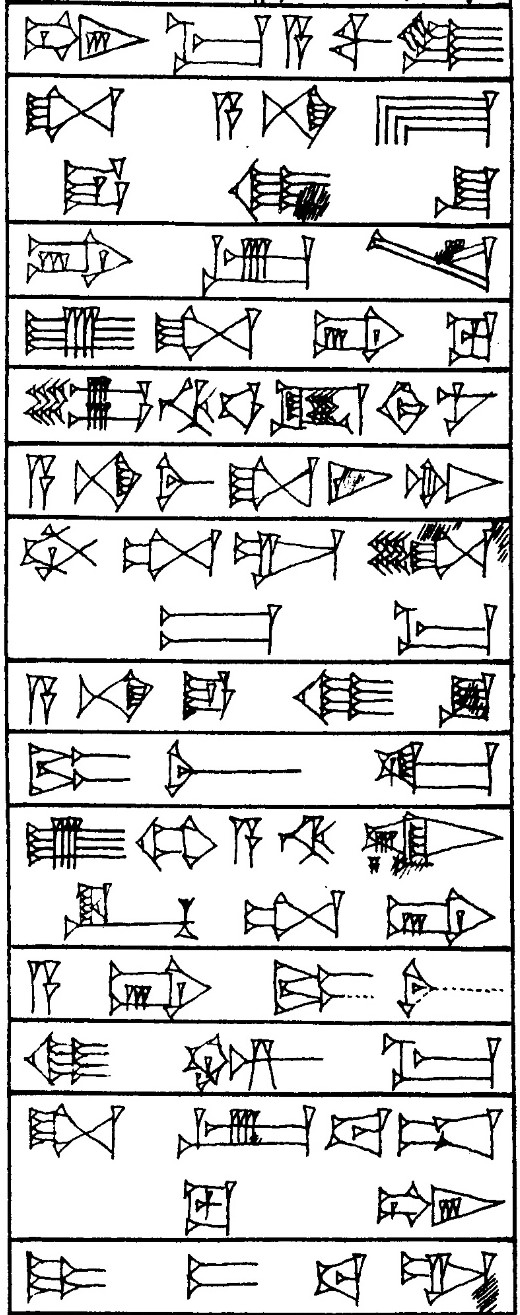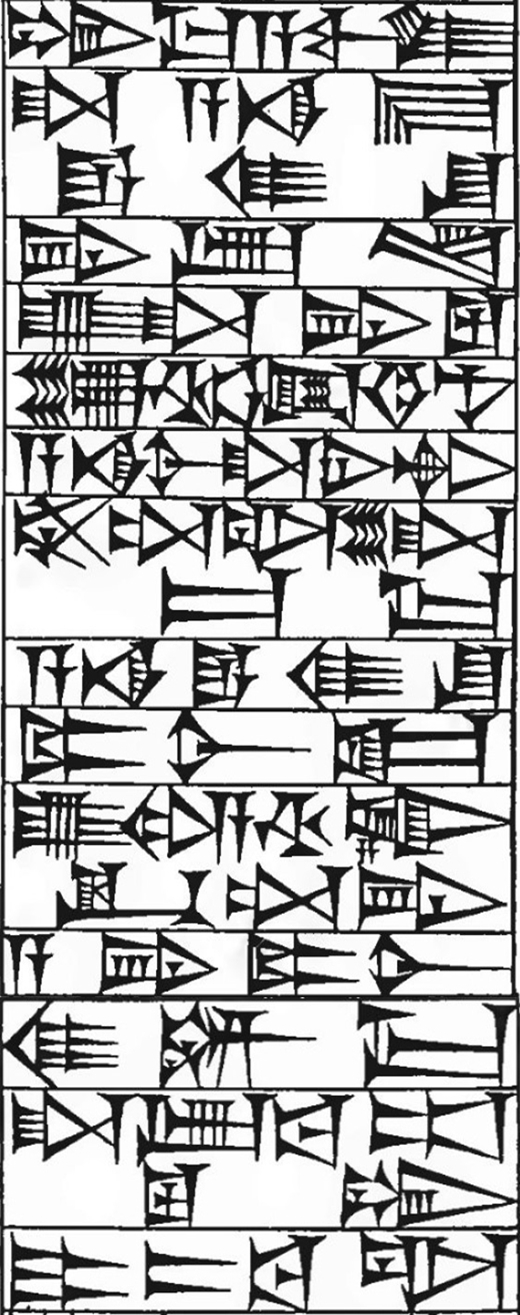Source: Huehnergard (2011, p. 383)
Source: Huehnergard (2013, p. 101)
Source: Huehnergard (2013, p. 101)
Cuneiform
Signs for Law § 159
- UnavailableSource: Bergmann (1953, p. 20)Source: Harper (1904, p. [pl. XLIII–XLIV])
Inscription
Location of Law § 159 ·
Powered by Stele 3DSM
Logic
Logic Map for § 159 · Powered by Lawgic Sniffer SM
- 1 If
- 2
- 3 a man
- 4 who had dispatched
- 5 a marriage-gift
- 6 (to) his
- 7 father-in-law’s
- 8 estate
- 9
- 10 and
- 11
- 12 [he]
- 13 [had] given
- 14 the bride-price
- 15
- 16 [but]
- 17
- 18 [he]
- 19 has become attracted to
- 20 another woman
- 21
- 22 and
- 23
- 24 [he]
- 25 said to
- 26 his
- 27 father-in-law
- 28 "I
- 29 will not
- 30 marry
- 31 your
- 32 daughter,"
- 33
- 34 [then]
- 35
- 36 the daughter's
- 37 father
- 38 will keep for
- 39 himself
- 40 whatever [marriage-gift and the bride-price]
- 41 was brought to
- 42 him.
- 43
- 44
- 45
Citation
Dedović, B. "§ 159 - eHammurabi." OMNIKA Foundation, 3 Nov. 2023, ehlaw.org/law/159. [Accessed 27 Jan. 2026]
Dedović, B. (2023, November 3). § 159 - eHammurabi. OMNIKA Foundation. https://ehlaw.org/law/159
Bibliography
Abulhab, Saad D. The Law Code of Hammurabi: Transliterated and Literally Translated from its Early Classical Arabic Language. New York, NY: Blautopf, 2017.
Bergmann, Eugen. Codex Ḫammurabi: Textus Primigenius. Rome, Italy: Pontificium Institutum Biblicum, 1953.
Huehnergard, John. Key to a Grammar of Akkadian (Third Edition). Winona Lake, IN: Eisenbrauns, 2013.
OMNIKA Foundation Contributors. "OMNIKA: Digital Mythology Library & Search Engine." Las Vegas, NV: OMNIKA Foundation, accessed November 14, 2023. https://omnika.org. [Visit]
Richardson, Mervyn E.J. Hammurabi's Laws: Text, Translation and Glossary. New York, NY: T & T Clark International, 2004.
Sound of Text Contributors. "Sound of Text: AI Text-to-Speech." Accessed November 14, 2023. https://soundoftext.app. [Visit]
eHammurabi Glossary
The § symbol commonly denotes "a shorthand notation for the word 'section'."
Read moreeHammurabi Glossary
The term Cuneiform commonly means "an ancient writing system used by various cultures around Mesopotamia."
Read moreeHammurabi Glossary
The term Normalization commonly means "the application of grammatical rules unto transliterated sound values."
Read moreeHammurabi Glossary
The term Translation commonly means "the conversion of linguistic contents and their meanings from one language into another."
Read moreeHammurabi Glossary
The term Transliteration commonly means "the conversion of sound values from one writing system into another."
Read more




